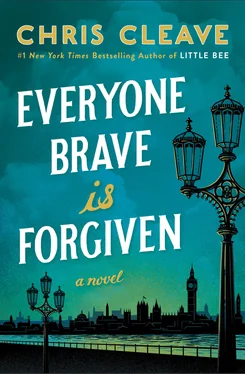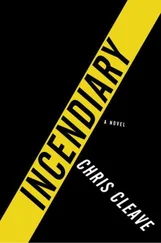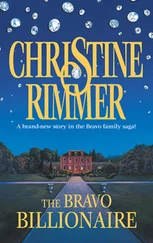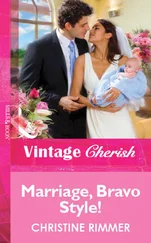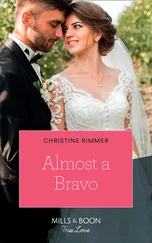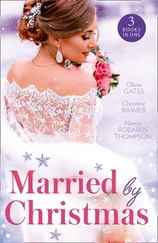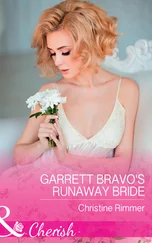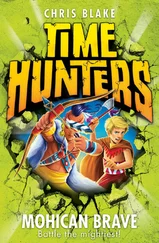He struck another match. These men had got off rather lightly. With any luck they had lost their heads before their hands. In another pit, a week earlier, they had found a skeleton with every long bone broken and the rusty flakes of nails driven through the spine. Anyone might have done it — Malta was eight thousand years of nails. It was nothing one wanted the men to think about while they waited for the enemy’s paratroopers to arrive.
Alistair put his head and shoulders back out into the wind, gathered the last of his strength, and hoisted himself up on his good arm. He went over to the men and stood them down. He watched them disperse into dust, bent against the wind. Every bump of their spines was visible.
He kept Briggs back. The two of them said a few words over the remains, ran bayonets across some of the moat’s retaining sandbags, and filled up the burial pit with sand. When they were done it was after six and Alistair was exhausted. His eyes wouldn’t focus. He hauled his headache up to his room and took the bandage off his hand. It oozed yellow poison. He boiled water on his Primus, salted it, let it cool, and cleaned the wound.
Through the rifle port,the sun was setting. The scream of the wind fell slightly. He lit a lamp, reducing the wick so that it burned as little kerosene as possible. He propped the painting against the wall. Its gilt frame shone in the close glow of the lantern. The figures were best in such confidential light. He was so tired that he fell asleep sitting up. When he woke he found himself reaching out to the painting with his wounded hand, in fragile light as the kerosene exhausted itself. He stared at the dying hand before him, and for a moment he wondered which poor chap’s it was.
PALMER BROUGHT MORPHINE IN a brown glass bottle with a pipette built in to the stopper. Mary thought it ingenious. Everything about the tincture delighted her — that its smell was soberly medical, that a few drops on the tongue were a remedy for feelings, and that Palmer seemed able to procure it without fuss. On her return from hospital he had taken to appearing at three-hourly intervals with the pewter tray — not the silver, since her father was still away at the constituency. From the tray he would set down the brown bottle and a glass of iced water, on pewter coasters backed with green felt, together with fruits in a porcelain bowl.
Palmer would then dematerialize, leaving Mary to dispense the morphine at her convenience. This was proper, since it placed the stuff in the category of remedies, which were taken in private, and not of tonics, cocktails, or pick-me-ups, which were mixed to order and then taken while the butler hovered in case the blend was found to want celery salt, or bitters. The little bowl of fruit was appropriate too, since fruit was something — just like morphine — that one could easily take or leave.
Mary thought Palmer so painstakingly humane that she felt unable to disturb his sleep by ringing for him at three in the morning when she awoke in a sweat from nightmares that wouldn’t release her. Instead she sat up in bed with the covers pulled tight, wide-eyed while hallucinations of her dead children scratched away at the inside of the wardrobe doors. Kenneth Cox whispered behind the fire screen, behind the cheval mirror, behind her head so that she had to keep looking around.
It was a horribly long time until Palmer came in at seven with the tray, and then it was difficult to wait while he opened the curtains and laid out the newspaper and unfolded the newly issued day. Only when he vanished could she fall on the morphine and squeeze the red rubber bulb to draw up the seven trembling drops that the doctor had prescribed, and the further ten drops by which the doctor had underestimated things.
Mary lay back on the bed and dissolved into the immaculate morning.
At nine, finding her fingers still too relaxed for fine work, she needed her mother’s help to dress.
“You will want to quit that stuff as soon as you can,” said her mother, buttoning Mary’s blouse. “I don’t know what you plan to do with the day, but I cannot see it involving successful interactions with objects or persons.”
“You know the morphine is only till my wound is healed.”
Her mother picked up the brush and began on Mary’s hair. “It has been a whole month, darling. If you had cut something actually off, one might not begrudge you the paregoric. But you are a North, Mary. We don’t go south over flesh wounds.”
“The doctor says I shall have a limp.”
“Then live the rest of your life seated, if you must, but please do it sober.”
Mary stared out of the window, bracing her head against the tug of the hairbrush. She watched the freshly laundered clouds dissipate and resolve. The eye was an extraordinary instrument. How mysterious that it could be brought to bear on that tiny, distant pigeon — there — and then refocused in an instant on an object that existed only in memory. She watched herself at the same window, aged five, sucking on an orange boiled sweet, popping it out of her mouth from time to time to check how much remained and to peer at the slowly resolving city through the translucent glass of the candy.
“Mary!” Her mother set down the hairbrush with a bang. “I won’t have you go to pieces like this. Tell me your plan for the day, and I shall expect an update over supper. Why don’t you write to that man of yours?”
“To Alistair? Oh no. I haven’t written to him since I was hurt.”
“Why ever not? The poor thing must be frantic.’
“I no longer enjoy any happiness I have taken from Hilda. I hope Alistair will understand.”
“But you were so serious about him!”
Mary tried to bring her mother’s face into focus. “You have always insisted that I am not a serious person.”
“Then won’t you go for a walk, at least? Take an umbrella for the showers, and call on Hilda.’
“Hilda will be sleeping. We work nights, as you know.”
“Enough of this ‘we.’ You are not to go back to the ambulances. If you’d only listened to me…”
‘Then I’d be Mrs. Henry Hunter-Hall by now, in Gloucestershire, berating the keeper for displaying poachers’ heads on the railings.”
Her mother set to with the hairbrush again. “But would that be so awful, darling? To be the prettiest thing in Brimscombe and Thrupp?”
“I should rather die.”
“You nearly did.”
“Yes, but I tend to blame the Germans.”
“Well I blame you for getting in their way. There are a dozen ways of serving, for a young woman of your abilities, that are safer and more beneficial to the cause. Do you think less of your father, for example, that he serves in the House rather than in the street?”
“Of course not. But I let the War Office decide how I was to serve, and they made me a schoolteacher. Everything else has followed from that.”
Her mother looked away. “All the other mothers wrote letters to Whitehall, of course. But at your father’s level one must be so careful about the exercise of influence. I feel awful about it now. I never imagined the War Office would be so obtuse as to assign you to the ordinary lottery.”
Mary kissed her cheek. “I really don’t mind in the least.”
“Because you are intoxicated, darling. But I mind, very much. What is the good of influence if one can only use it on strangers?”
“But I am happy. Isn’t that what matters?”
“You aren’t ready to make your own choices. Look where it’s got you.”
“Where has it got me? Here I sit, in the very same room as you.”
“And yet you are miles away. It kills me to see you so dissolute.”
“You kill me, Mother. You hate my choices but make none of your own. We tiptoe on our carpets, deferring some imagined joy to a hoped-for day when Father will do some good for people. And in the meantime we do not live among people at all. We swim in aspic.”
Читать дальше
